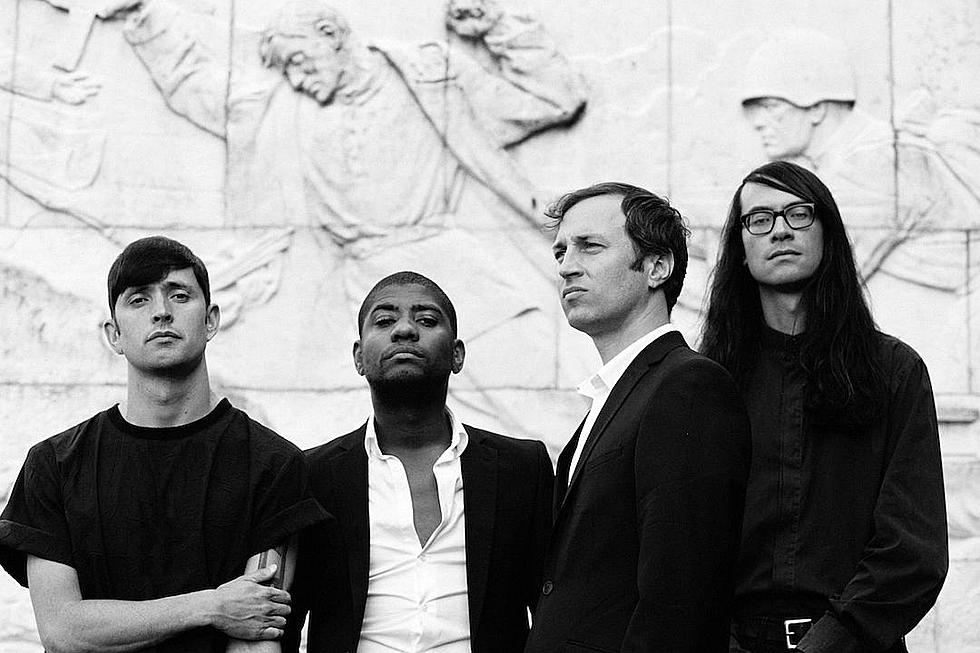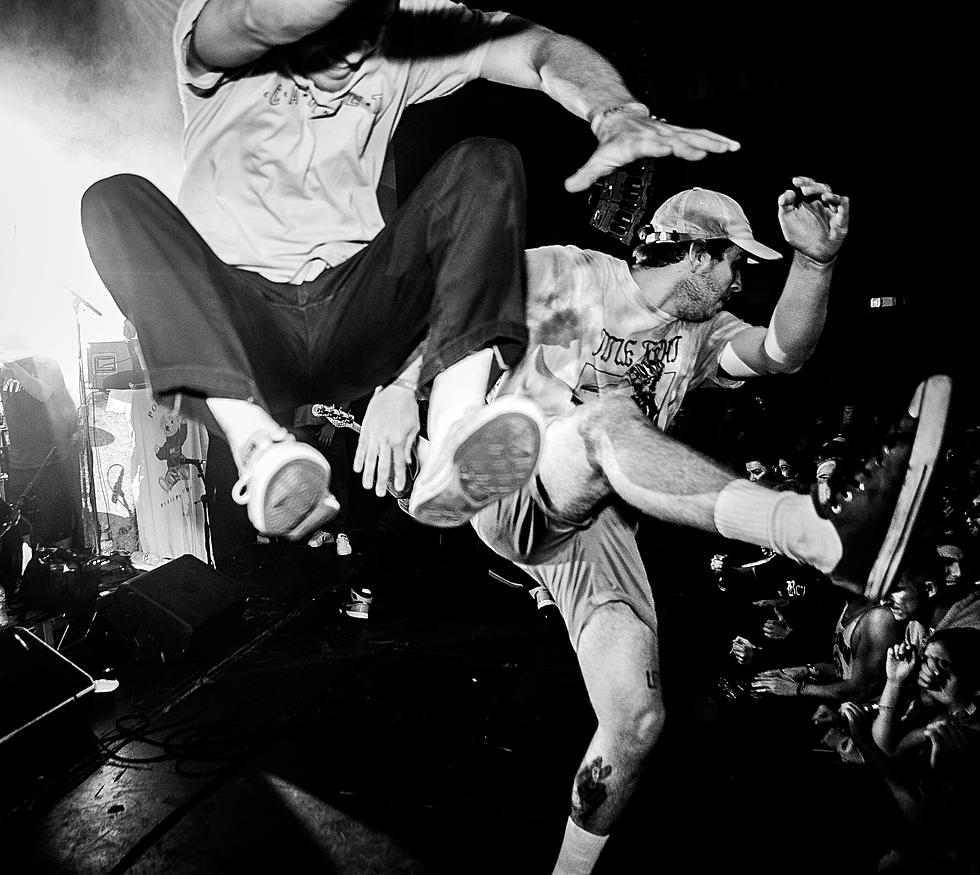
The New Alternative Music Fest Defies Commodification
Music festivals are not for music fans. In the modern era, they’re built around the extracurricular — the best reporting at Coachella is predicated on the cosmetic; Bonnaroo, Lollapalooza and their ilk boast homogenized lineups. The only way the form can survive, to continue to provide a place of communal discovery, is to change scope. It’s the reason the New York Times announced earlier this year that they’d only focus on subcultural fests with pointed genre-signifiers and aesthetics, and it’s the reason that kind of coverage works — it’s about music and the people who make it great, not the people who use music as a backdrop for a superficial social experience. At the heart of that, of course, is money. Brands and sponsors decide who plays what stage and when; curators are often at their mercy. The New Alternative Music Festival sought to subvert that capitalistic structure this weekend in Asbury Park, New Jersey, and did so triumphantly.
The idea was simple enough: Throw a festival with no sponsors. There’s even a mission statement:
There is an alternative to music released and distributed by three multi-national corporations.
There is an alternative to music festivals as branded experience for millennial males.
There is an alternative to music steeped in sexism, racism and homophobia.
There is an alternative to corporately managed bands.
There is an alternative to music as a commodity.
There is an alternative to corporately run music festivals.
Joe Steinhardt co-founded Don Giovanni Records in 2003, focusing on bands that operated in and around his soon-to-be home of New Brunswick, N.J. It was an exciting time to focus on local punk sounds. He and his business partner, Zach Gajewki, found themselves putting out records for revelatory independent rock acts (and decidedly not cis, heteronormative, white male artists — the identity that pervades independent rock acts) like Screaming Females, Laura Stevenson and Waxahatchee, eventually working with artists like Alice Bag, Moor Mother, Downtown Boys and Aye Nako, bands that share the sort of radical personal-as-political mindset that the o.g. DG bands set forth. The result is a label unlike many others, proof of the validity in regarding the artists as more than just manufacturers of product. When Steinhardt decided to organize the New Alternative Music Festival, he sought to bring this mentality to life in the live arena.
All-male bands were in the minority. The fest was set up in a fashion that bands played one right after the other with no overlapping — attendees were corralled in such a way that they watched every single band, depending on arrival time. Backstage was vacant —bands spent their downtime watching one another, cheering one another on. The venue itself — Asbury Park’s Convention Hall, an Americana establishment, one that feels and breathes history — was completely accessible. There were couches if you needed them; there were no stairs; it was all-ages; the bathrooms were gender-neutral and on the ground floor, the only floor. Tickets were a respectable $25 a day (for 16 to 17 bands each day). Essentially, if you wanted to be there, you could. By creating an inviting space for all backgrounds, NAMF sought to bring attention to what actually matters to Steinhardt and, most importantly, the fucking bands.
DAY ONE
Philly’s Moor Mother took the stage early in the afternoon, Camae Ayewa’s electronic noise soundscapes operating as protest music to set a tone of defiance and celebration. The nerdcore raps of Sammus (born Enongo Lumumba-Kasongo) followed in that tradition with a vastly different approach. Later, a solid rock block, with California X and Nude Beach's riff-heavy attacks inspiring audience bops. Radiator Hospital enticed more. It’s always a delight to hear strangers sing along to RH frontman Sam Cook-Parrott’s distinctive nasal tone; they tend to perform to his register.
Appleton, Wis., band Tenement hit the stage with two tambourine players that doubled as back-up singers. There are few acts in 2016 as prolific as Tenement’s Amos Pitsch, whose massive double albums span genre and challenge the act of record-listening — they're long, they’re complicated, and when they’re not, they’re short blips of punk-pop delicacy. The latter are the kind of songs the band performs live, but with additional bodies onstage, singing and swaying, Amos and crew make sure you can’t get it twisted; they’re making weird every performance they’re allowed to make weird, which makes them memorable.
P.S. Eliot followed, performing for the third time since 2011. Twin sisters Allison and Katie Crutchfield have found success in their other bands — Swearin’ and Waxahatchee respectively — but a P.S. Eliot reunion served to further legitimize this realm of indie rock as something with a history. Bands come and go, but the good ones continue to be beloved. P.S. Eliot are one of those bands. There were some fumbles here and there, the kind that come with playing songs you wrote as a previous person, trying to get them right later on (this was most endearingly exemplified in “Tennessee,” Katie throwing in an extra repetition of “I’ve got a West Coast heart and an East Coast mentality”). At one point, a girl dancing in the front row bumped into a dude that started harassing her; Katie stopped the performance, separated the two, and went on merrily. There was no issue; no security needed to be called. It was a minor altercation, quickly rectified. Soon after, Ought and Screaming Females closed out the night, managing to entertain a room of a couple hundred after 10 hours of live music.
DAY TWO
A third day was originally planned, but cancelled. Fine by this writer; it is possible to have too much of a good thing. Vagabon’s stripped-down setup and sweet folk croon carried an unmatched vocal performance. Los Angeles’ Upset — led by Ali Koehler, formerly of Best Coast and Vivian Girls, with Hole’s Patty Schemel on drums — brought necessary sunny pop-punk energy to NAMF with songs about heartbreak and friendship that seemed to mirror attendees' experiences. More than a few audience members ran to their merch stand after the set. Dyke Drama, fronted by Sadie Switchblade of popular punk band G.L.O.S.S., brought a certain edge, Switchblade joking about not knowing anti-folk hero Jeffrey Lewis … who followed their performance with two comic shorts about the history of Communism in Cuba and Vietnam.
Mal Blum shredded through songs about depression (not seasonal depression). Aye Nako did, too. Sex Stains — fronted by Bratmobile’s Allison Wolfe, sharing vocal duties with Mecca Vazie Andrews — were the first to break the fourth wall, jumping into the crowd and leaving between-song-banter to the topics of their current periods and how much dating in Los Angeles sucks. Laura Stevenson slowed things down with twangy precision; Girlpool played new songs. At the end were Downtown Boys, America’s most exciting punk band. It would be dishonest not to divulge the tear-inducing moment of frontwoman Victoria Ruiz throwing her mic into the crowd, where a young woman of color scream-sang, “She’s brown! She’s smart!” back to her in the monstrous “Monstro.”
The fest ended with kids from the greater tri-state area waddling onto the Asbury Park boardwalk under a bright, full moon. Instead of heading home after a long two days, they made their way to two of the clubs that held the after-shows. Hugs were exchanged between new friends and I found myself thinking of NAMF’s success while it ended — how Steinhardt and crew managed to create a real feeling of community among a scene that’s been fighting for that particular kind of inclusiveness since day one. As it stands, there’s no plans for this festival to ever be repeated. We can only hope that some stubborn kid in the crowd will one day remember this weekend and attempt to recreate it.
More From CLRVYNT









